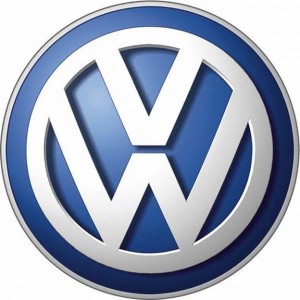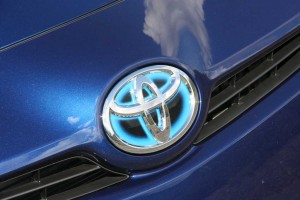
Despite the sales hit it took due to the diesel scandal, Volkswagen overtook Toyota for the global sales crown.
It’s official: Volkswagen Group became the world’s best-selling automaker in 2016, toppling king-of-the-hill Toyota by more than 150,000 vehicles worldwide.
If anything, analysts suggested, the German maker’s lead would have been even larger were it not for VW ongoing diesel emissions scandal. Demand in the key U.S. market took a double-digit dip last year, but the “people’s car” company still managed to deliver a 3.8% global increase, buyers around the world taking delivery of 10.31 million products sold under a range of marques, from entry-level Seat to ultra-luxurious Bentley, as well as the flagship Volkswagen brand.
By comparison, Toyota delivered 10.18 million vehicles last year, a more modest 0.2% year-over-year increase. The Japanese giant had snatched the sales crown from long-time leader General Motors in 2009, ceding the title only once during the past eight years.
VW’s victory in the sales race came two years ahead of the target set by Martin Winterkorn. The CEO, ousted in late 2015 after word of the diesel emissions rigging became public, had originally hoped to become the world’s automotive sales leader by 2018.
Winterkorn’s successor, meanwhile, has tried to downplay sales goals, saying the company no longer will target being number one. Instead, CEO Matthias Mueller has laid out a series of new targets, starting with efforts to improve corporate ethics and remove the stain of the emissions scandal.
(Former VW CEO under increasing scrutiny. Click Here for the story.)
Meanwhile, VW has said it will all but abandon the sale of diesels in the U.S., while shifting its focus to plug-based products. It recently introduce an updated version of its e-Golf battery-electric vehicle and, during the Paris Motor Show last autumn announced plans to launch an all-new brand-within-a-brand of electric vehicles. A concept version, the Volkswagen I.D. Buzz, was unveiled at the North American International Auto Show in Detroit earlier this month.
It’s unclear if the German company will actually launch a production version of that microvan prototype, but Mueller has also stressed that VW needs to revitalize the American market where it saw sales dip 2.8% last year, to 591,000 vehicles. That figure covers the VW, Audi, Bentley, Porsche and Lamborghini brands. Worldwide, the maker operates more than a dozen vehicle brands.
VW benefited in 2016 from a revival of the European market, where sales hit 4.21 million. But it also gained significant momentum in the Chinese market, where demand rose 12.2% year-over-year. Volkswagen is now China’s largest automotive manufacturer – and with sales of 3.98 million, the country could soon surpass Europe as VW’s largest market, according to many industry analysts.
As for Toyota, the maker is expected to retain the title of most profitable automaker for 2016, but sales only grew marginally from the 2015 total of 10.15 million vehicles.
A variety of factors appear to have hurt Toyota’s global aspirations, including a series of problems with parts suppliers in the Japanese market. Toyota also struggled to match the momentum of Volkswagen and other key rivals in the Chinese market.
(Click Here to see the examination of Martin Winterkorn’s role in the diesel scandal.)
This marks only the second time Toyota has lost the sales leadership since it surpassed General Motors in 2009. It fell back in 2011 as a result of the catastrophic earthquake and tsunami that hurt all the Japanese automakers for months.
Like his VW counterpart, Toyota’s chief executive Akio Toyoda has tried to downplay the company’s desire to be number one. It is launching an array of new products aimed at shifting its image from a maker of bland appliances to one whose vehicles deliver what Toyoda calls a “passionate” design and driving experience.
But the Japanese maker is generally seen as settling into the second spot globally for at least another year or two.
As for GM, the maker came in third in 2015, with sales of 9.8 million vehicles. It is not expected to challenge either Toyota or VW when it releases its own 2016 total in the coming days.
(To see more about Toyota adding 400 jobs in Indiana, Click Here.)
The wild card in the race is the Renault-Nissan Alliance. It finished 2015 in fourth place. But it last year took control of the struggling Japanese maker Mitsubishi and will begin rolling that brand’s sales numbers into its own. During a media roundtable at the Consumer Electronics Show early this month, CEO Carlos Ghosn suggested Renault-Nissan “could” become the number one automaker in the coming year.

